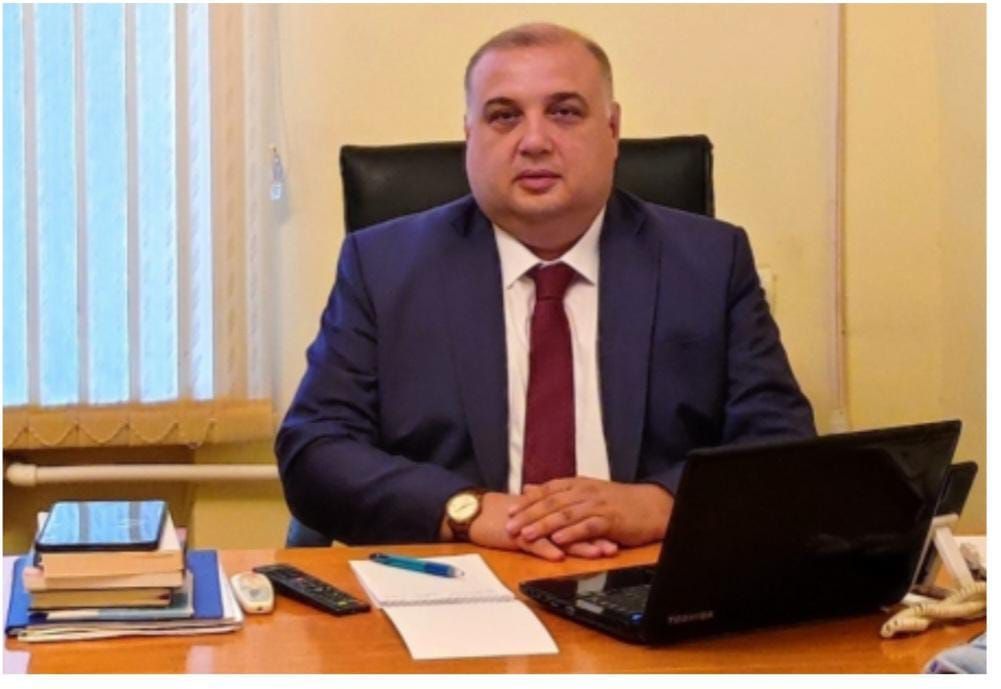|
|
TODAY.AZ / Business
Holding international forums gives impetus to development of Azerbaijan's banking sector
01 November 2023 [18:00] - TODAY.AZ
 Qabil Ashirov
Qabil Ashirov
Baku is holding the VII International Banking Forum, which will continue for two days. The Azerbaijani Banks Association, jointly with the International Card Organization Mastercard, organized the Forum with the support of the Azerbaijani Central Bank and the Centre for Analysis and Communication of Economic Reforms.
Having discussed "Reliable, Safe, and Sustainable Banking," "Unlocking Opportunities: Neobanks and the Financial Ecosystem", "The New Frontier of Self-Service", "Financial Technologies and Trends", "Evolution of Payments: Towards Minimum Contact", "Data & Analytics Strategy for Operational Efficiency", "Proactive Fraud Prevention in the Digital Financial Ecosystem", "Prevention Opportunities", "ESG Banking" and "Remittances in Southeast Europe, Eastern Europe, and Central Asia," the Forum aims to promulgate challenges in the activities of banks as well as to promote mutually exchanging experiences and innovations in the banking sector.

Speaking to Azernews on the issue, economist Eyyub Karimli stressed that holding such international forms has benefits and significant effects on the development of Azerbaijan's banking sector. He noted that Azerbaijan’s banking sector is facing big challenges today because certain instability and volatility are observed in the world financial system. As is known, several banks have gone bankrupt in the USA. He also mentioned several banks that have closed in recent years in Azerbaijan. From this point of view, it is very important to establish the work of banks according to these challenges.
“Thus, the implementation of international experience and the operation of the Azerbaijani banking sector in accordance with international standards, the further improvement of banking services, and the holding of such forums give a great impetus to the development of the banking sector. On the other hand, as we know, today the banking sector in Azerbaijan is stable, but in some cases, we observe the weak positions of certain banks. Today, the number of services provided by banks in Azerbaijan is small, and we observe an increase in the price of loans. I think these forums will have an impact on attracting foreign investments to banks,” the economist noted.
He also pointed out that such an event has a positive effect on ensuring the activities of foreign banks and the activities of foreign-invested banks in Azerbaijan, which undoubtedly will have a great impact on the stability of the banking and financial system and the provision of banking services in accordance with international standards. This, of course, will have certain effects on the introduction of new products (tools) in banks and the introduction of digital payments.
“Besides, I also think that digital payments are expected to increase in the future. From this point of view, of course, there is a need for banks to further improve and increase new digital applications, create wide opportunities for non-cash payments, and provide the market with new tools by banks. Unfortunately, today our banks act mainly as credit institutions,” Eyyub Karimli opined.
He stressed that, however, as is known, with reference to international practice, banks also act as investors. From this point of view, he thinks that there are some points for Azerbaijani banks to learn. Today, the world's banking system is increasingly giving preference to electronic payments, and we already see that the percentage of cash payments is decreasing.
“In this regard, Azerbaijani banks face bigger issues in the future. One of them is the networking and expansion of the banking sector, and there are certain problems in this regard in the Azerbaijani Republic. In addition, there is a great need to reduce the cost of loans. Because, as we know, in the post-pandemic era, there is inflation all over the world, and our banks must adapt to it,” the expert concluded.
URL: http://www.today.az/news/business/240752.html
 Print version
Print version
Connect with us. Get latest news and updates.
See Also
- 11 April 2025 [15:08]
Alat Free Economic Zone's working group holds second meeting - 10 April 2025 [14:37]
AzerGold explores new partnerships at Pakistan Mineral Investment Forum - 10 April 2025 [14:24]
SOCAR President holds talks with Moldova’s deputy PM on energy cooperation - 10 April 2025 [10:44]
Documentary film screened at Nizami Cinema Center on Leyla Aliyeva's initiative - 09 April 2025 [10:22]
Azeri Light oil price drops at Augusta and Ceyhan terminals - 08 April 2025 [14:00]
Azerbaijan and Pakistan discuss new projects to boost mutual investments - 08 April 2025 [12:46]
Kazakhstan's Financial Regulation Head visits Azerbaijan for talks on financial sector development - 07 April 2025 [13:43]
Czech Ambassador emphasizes practical approaches to sustainable development at Baku Event - 07 April 2025 [13:18]
Ambassador Torma: Azerbaijan plays a key role in Europe's energy security and green transition - 07 April 2025 [12:15]
Feasibility study for Azerbaijan-Turkiye Green Energy Corridor officially launched
Most Popular
 Now he's selling people, too. Macron has broken another bottom
Now he's selling people, too. Macron has broken another bottom
 They become completely arrogant: Neither the Armenians nor the EU are hiding their "cognac diplomacy" anymore
They become completely arrogant: Neither the Armenians nor the EU are hiding their "cognac diplomacy" anymore
 National artists showcase art pieces at Art Shopping in Carrousel du Louvre
National artists showcase art pieces at Art Shopping in Carrousel du Louvre
 National Art Museum director attends TURKSOY Museums' Union meeting
National Art Museum director attends TURKSOY Museums' Union meeting
 From crisis to cooperation: Azerbaijan’s role in Turkiye-Israel rapprochement
From crisis to cooperation: Azerbaijan’s role in Turkiye-Israel rapprochement
 How post-war situation will continue to develop mainly depends on Armenia, says President
How post-war situation will continue to develop mainly depends on Armenia, says President
 Armenian occupation of Azerbaijan's territory prevented development of South Caucasus
Armenian occupation of Azerbaijan's territory prevented development of South Caucasus
